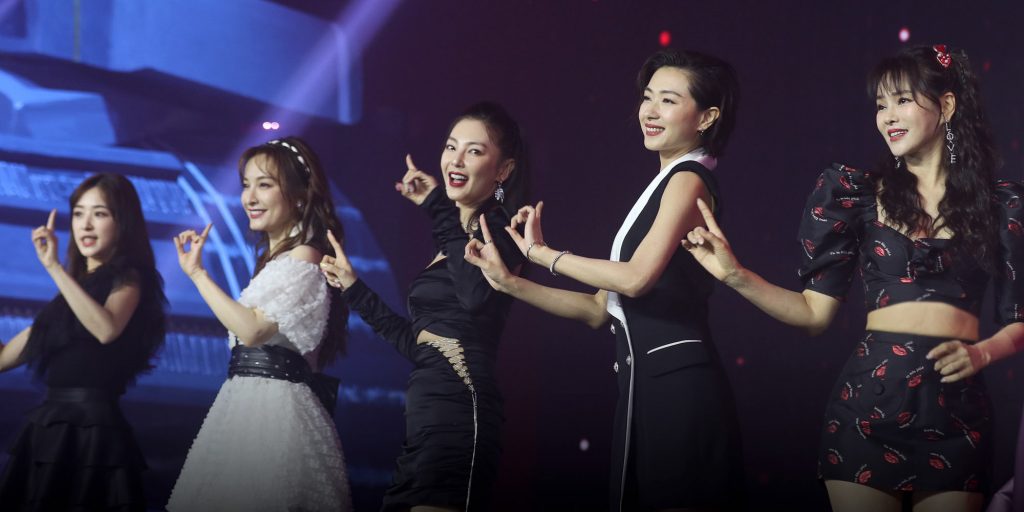Between progressive politics and drama, producers will always choose the latter. But that doesn’t mean the show isn’t worth watching.
For the most talked-about show of the summer, Mango TV’s “Sisters Who Make Waves” has an unusual premise. The idol competition, which premiered on June 12 to widespread acclaim, breaks with genre convention by inviting 30 performing artists over the age of 30 to compete for spots in an all-female band. In the words of one gushing review: “Now that I’ve seen these ‘sisters,’ I’m less scared of growing old!”
A magazine editor friend of mine expressed a similar sentiment: “The entertainment industry is notoriously ruthless, a social jungle ruled by an even harsher version of ‘survival of the fittest,’” she said. “But this show tells us that we have another chance, that we can feel alive again, and that’s inspiring.”
When the show’s producers landed on the concept of “Sisters,” I’m sure they had women like my friend in mind as potential viewers. The show’s advertising deliberately used positive, stereotype-smashing language calculated to highlight the charisma, bravery, and confidence of its mature stars. To quote one of its taglines: “Thirty ‘sisters’ defy age, convention, and labels to form a band.”
Although certainly politically correct, that’s probably going too far. “Sisters” is ultimately just another idol show. What it delivers — and what keeps viewers hooked — isn’t empowerment, but vicarious thrills.
At first glance, “Sisters” does seem unconventional. Most idol shows feature contestants in their teens and 20s. “Semi-finished goods,” these aspiring stars are more than willing to play by the rules and ingratiate themselves to the shows’ almighty judges.
The industry veterans of “Sisters,” on the other hand, flout the rules, challenge the program’s crew, and push back against the judges. When an on-camera director asked Taiwanese singer Annie Yi — at 52, the oldest contestant on the show — to cover her knees, she wasn’t having it. “Can’t we do it my way for once?” she asked. “Just let me sit here in peace.”
It’s a gratifying scene for the audience, who gets to experience the excitement of watching the show’s power dynamics momentarily flip. The show likely also benefitted from audience disgust with the omnipresent “data economy” in which young stars with fanatical Generation Z fan bases like Cai Xukun monopolize the public discourse. Indeed, one of the biggest celebrity dust-ups of the past year took place when disgruntled Generation X and Millennial backers of mandopop star Jay Chou briefly toppled Cai from his place atop microblogging platform Weibo’s hot topic rankings. “Sisters,” too, is a reminder the world doesn’t always revolve around ingénues or their “little fresh meat” counterparts.
Yet for all the praise “Sisters” has received for its premise, the show’s primary conflict isn’t between women of a certain age and the stereotypes holding them back, but between two very different subgroups of female celebrities. The 30 women in “Sisters” may all be of roughly similar ages, but they come from extremely disparate backgrounds. Continue to read the full article here
– This article originally appeared on Sixth Tone.






